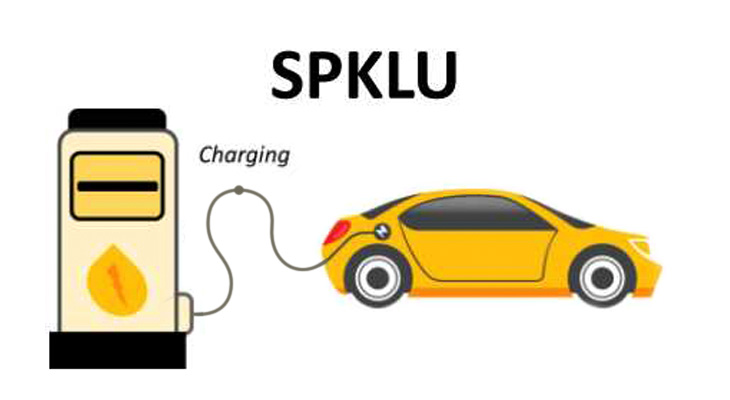AAA weekly
2020-11-23
Copyright FOURIN, Inc. 2025
Indonesia Promotes the Expansion of BEVs and Supporting Infrastructure
Indonesia has begun to launch concrete policies to promote investment in the electric vehicle field. The basic policy is the Presidential Regulation No. 55 of 2019 announced in August 2019. The regulation puts forth production targets, tax incentives, operating regulations for charging infrastructure, financing support and other measures.
One of the BEV-related policies is financial support for charging infrastructure development projects. In August 2020, Indonesia’s Ministry of Energy and Mineral Resources issued a regulation on electricity charging infrastructure for BEVs. The regulation establishes public and private-use installation requirements, and safety standards for charging stations. By supporting the battery exchange station operators and the charging station operators, private companies will be encouraged to enter the sector, which is currently dominated by public entities.
Indonesia: Major Electric Vehicle-related Policies
| Subject | Details | Objectives |
|---|---|---|
| Introduction of BEV promotion measures (basic policy) | ・In August 2019, Indonesia issued the “Presidential Regulation No. 55 of 2019 on Acceleration of Battery Electric Vehicles Program for Road Transportation.” The regulation addresses five areas, 1 promotion of BEV-related industries, 2 granting incentives, 3 supplying charging infrastructure and electricity charges for BEV charging, 4 regulation of BEV related technologies and 5 environmental protection. | ・The regulation sets a local procurement rate targets for raw materials for BEV production. – For two and three wheelers, 40% or more in 2019–2023, 60% or more in 2024–2025 and 80% or more in 2026 and after. – For four wheelers, 35% or more in 2019–2021, 40% or more in 2022–2023, 60% or more in 2024–2029 and 80% or more in 2030 and after. |
| Change of luxury tax system (strengthening BEV preferential treatment) | ・In October 2019, Indonesia issued the “Government Regulation No. 73 of 2019 on Taxable Goods Classified as Luxurious in the form of Motor Vehicles which are Subject to Sales Tax on Luxury Goods.” The regulation will become effective in October 2021. | ・The main change is to switch the base of the taxation system from body type and displacement to CO2 emissions, and addition of preferential treatment for electric vehicles. ・The preferential treatment covers MHEV, HEV, PHEV, BEV and FCEV models. PHEV, BEV and FCEV models are exempt from taxation. |
| BEV production target | ・In November 2019, Minister of Research and Technology / Chief of the National Research and Innovation Board (BRIN) Bambang Brodjonegoro projected the domestic production scale of electric vehicles. | ・BEV motorcycle production is forecast to reach 2 million units by 2025 and 13 million units by 2050. ・BEV automobile production is forecast to reach 2,200 units by 2025 and 4 million units by 2050. |
| Operating regulations for charging infrastructure (granting incentives, supplying charging infrastructure) | ・In August 2020, Indonesia’s Ministry of Energy and Mineral Resources issued the “Presidential Regulation No. 13 of 2020 on Provision on Electricity Charging Infrastructure for Battery-based Electric Motor Vehicles.” It took effect on the same day. The regulation establishes public and private-use installation requirements, and safety standards for charging stations. | ・1 One relief is in the form of a connection fee and/or electricity subscription guarantee. 2 Integrated IUPTL holders are exempt from the obligation to pay the minimum amount for the first two years to owners of private electricity installations used for charging public transport electricity, SPKLU business entities and SPBKLU business entities. ・The aim is to promote the entry of private companies into the charging infrastructure business. |
| Loan relaxation for electric vehicles (promoting BEV-related industries, granting incentives) | ・In September 2020, Indonesia’s Financial Services Authority (OJK) eased lending rules for business loans linked to BEV manufacturing. | ・OJK abolished the upper limit of loans for businesses manufacturing BEV-related products (batteries, charging stations, parts). For small loans, up to 5 billion IDR, only the ability to repay principal and interest will be the screening criteria. ・The amount of loans to individuals and small businesses will be 75% of the risk weight. Generally, it is 100% percent for unrated companies. |
Indonesia: Operation Rules of BEV Charging Infrastructure
(Announced in August 2020)
| Public Electric Vehicle Battery Exchange Station (SPBKLU) | Public Electric Vehicle Charging Station (SPKLU) | |
|---|---|---|
 |
 |
|
| License acquisition | Companies must have a Single Business Number (NIB) and license approval from the Ministry of Law and Human Rights. No additional licenses are required. | Companies need to have an integrated Electric Provision Business License (IUPTL) or a sale IUPTL, depending on whether the SPKLU sources its own electricity or simply purchasing the electricity. License applications can be submitted through the Online Single Submission (OSS) system, a service that grants business licenses online. |
| Businesses eligible for preferential treatment | This regulation provides relief for owners of private electrical installations, sales of IUPTL holders and SPBKLU business entities that apply for new connections or changes in electric power to integrate IUPTL holders. | |
| Details of preferential treatment | 1 One relief is in the form of a connection fee and/or electricity subscription guarantee. 2 Integrated IUPTL holders are exempt from the obligation to pay the minimum amount for the first two years to owners of private electricity installations used for charging public transport electricity, SPKLU business entities and SPBKLU business entities. | |
| Power supply | Provisions of electricity charging infrastructure for BEVs is carried out through an assignment to PLN to cooperate with state-owned enterprises and/or other privately owned business entities. | |

